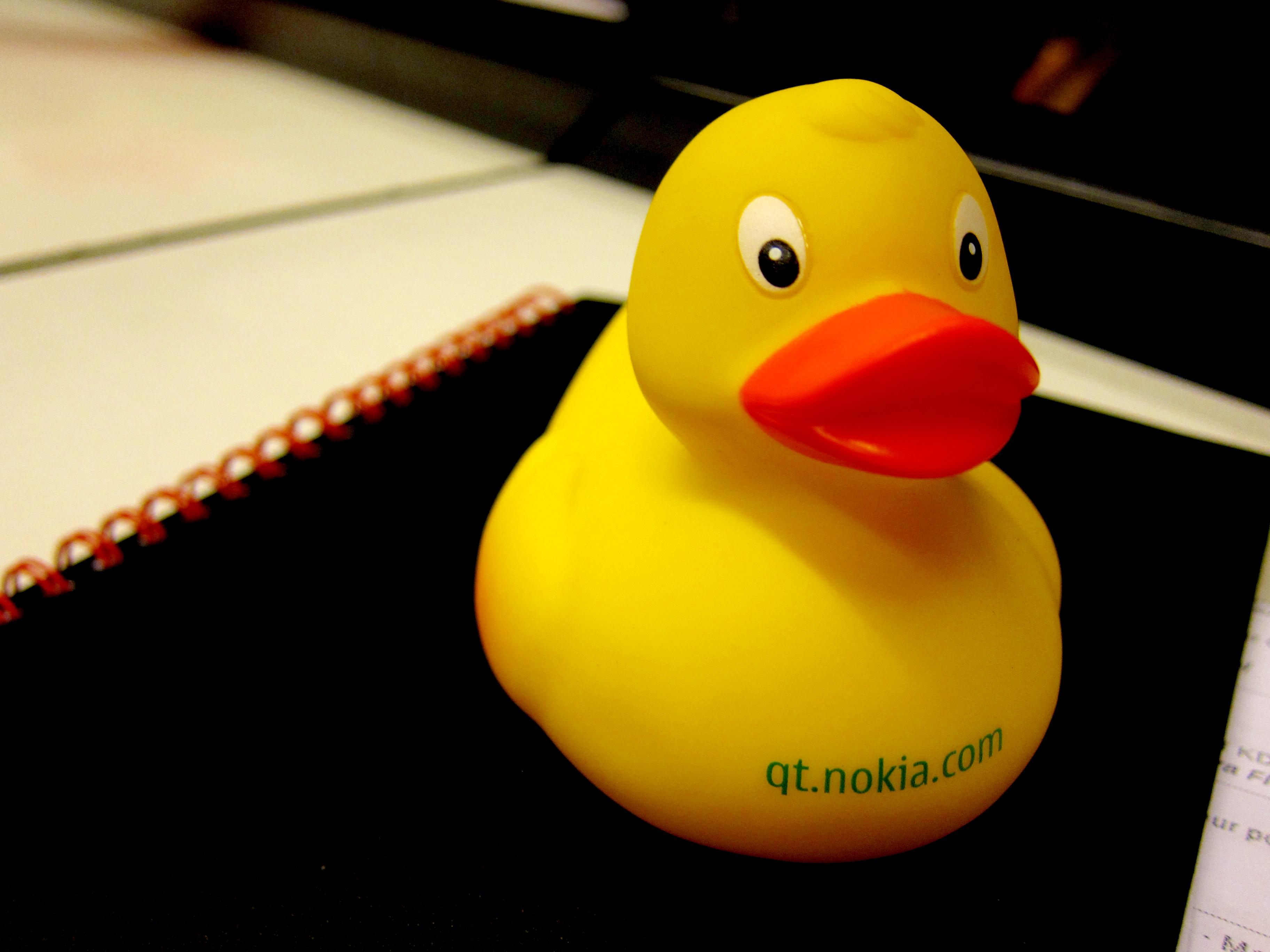Three weeks ago, I attended the KDE Akademy 2010 conference in Tampere, Finland. Besides the talk Parul Vora and I gave to share experience about User experience, I also took this opportunity to meet with the KDE community and discuss collaboration opportunities.
The talk we gave at KDE Akademy was entitled Wikimedia User Experience programs: lowering the barriers of entry. Basically, we presented the work done as part of the Wikipedia usability initiative, and the Multimedia usability project.
It might seem odd for Wikimedia to be presenting at KDE Akademy: Wikimedia is mostly about online content, while KDE is mostly about desktop software. Yet, they share common goals & values.
On the one hand, a common criticism made against KDE is its feature creep: the tendency to allow for maximum customizability in KDE often comes at the price of simplicity and ease of use.
On the other hand, MediaWiki, the software on which rely Wikipedia and the other Wikimedia websites, suffers from the same flaws: it has always been “designed” by developers. As a consequence, the interface reflects the implementation model, and often doesn’t match, or even conflicts with, the user’s mental model. The Wikimedia Foundation recently started to include user research and design as part of their development cycle, where user experience is taking a increasingly critical role.
Our presentation at Akademy was an opportunity to share experience. Both KDE and Wikimedia communities struggle to improve complex interfaces, and both communities have a lot to learn from each other.
Wikimedia and KDE also have more practical ties: Wikimedia Deutschland e.V. and KDE e.V. used to share an office a few years ago. I’ll take this opportunity to thank Claudia Rauch for inviting us to submit a proposal for Akademy this year.
Presentation slides & video
Thanks to KDE e.V. and their awesome volunteers, the full video of our talk (and the follow-up discussion) is available, along with all the other videos, from the Akademy schedule page. A slightly edited version is also available from Wikimedia Commons; you can also download the file to your computer (Download - OGV, 162 MB). Or, you can watch it below (streamed from Wikimedia Commons), if it works in your browser.
The presentation slides aren’t very useful alone, but they’re also available on Commons if you want to take a look or watch them alongside the video (Download - PDF, 2.2 MB).
Meeting the KDE community
I’ve had some interaction with the KDE community before. I used to live in the same city as one of the lead KDE developers, and we belonged to the same Linux User Group. I’m also familiar with the digiKam community, with whom I’ve been working on and off.
Besides our presentation, Akademy was also an opportunity to get together with the “gearheads,” to discuss collaboration opportunities, and of course to get my debugging duck.

“Take the duck from your desk, look at your code and explain to the duck—line by line—what it does.”“
Working hand in hand
We had planned to hold a more hands-on workshop to discuss practical common projects between the two KDE & Wikimedia communities. Unfortunately, I had to leave Tampere early to fly to Gdańsk for WikiSym & Wikimania. I didn’t have much time to explore the city either, which is a pity; Tampere is a quaint little city, and the surroundings looked really charming.
I would still like to work on common projects, as I think there’s a huge potential for a better integration of Wikimedia websites with the desktop. Since I’ve been thinking about this for a while, I have a few ideas of my own: mass upload tool, offline wiki editor, desktop widgets (e.g. for Wiktionary, Featured article of the day, Picture of the day), application plugins (e.g. to find media files from Commons from within an application), instant messaging with other Wikimedia editors, etc. That said, I would also like to collect ideas & feedback.
So, what Wikimedia content would you like to access from your desktop? For what use? What desktop tool would facilitate your editing or reading of Wikimedia projects?